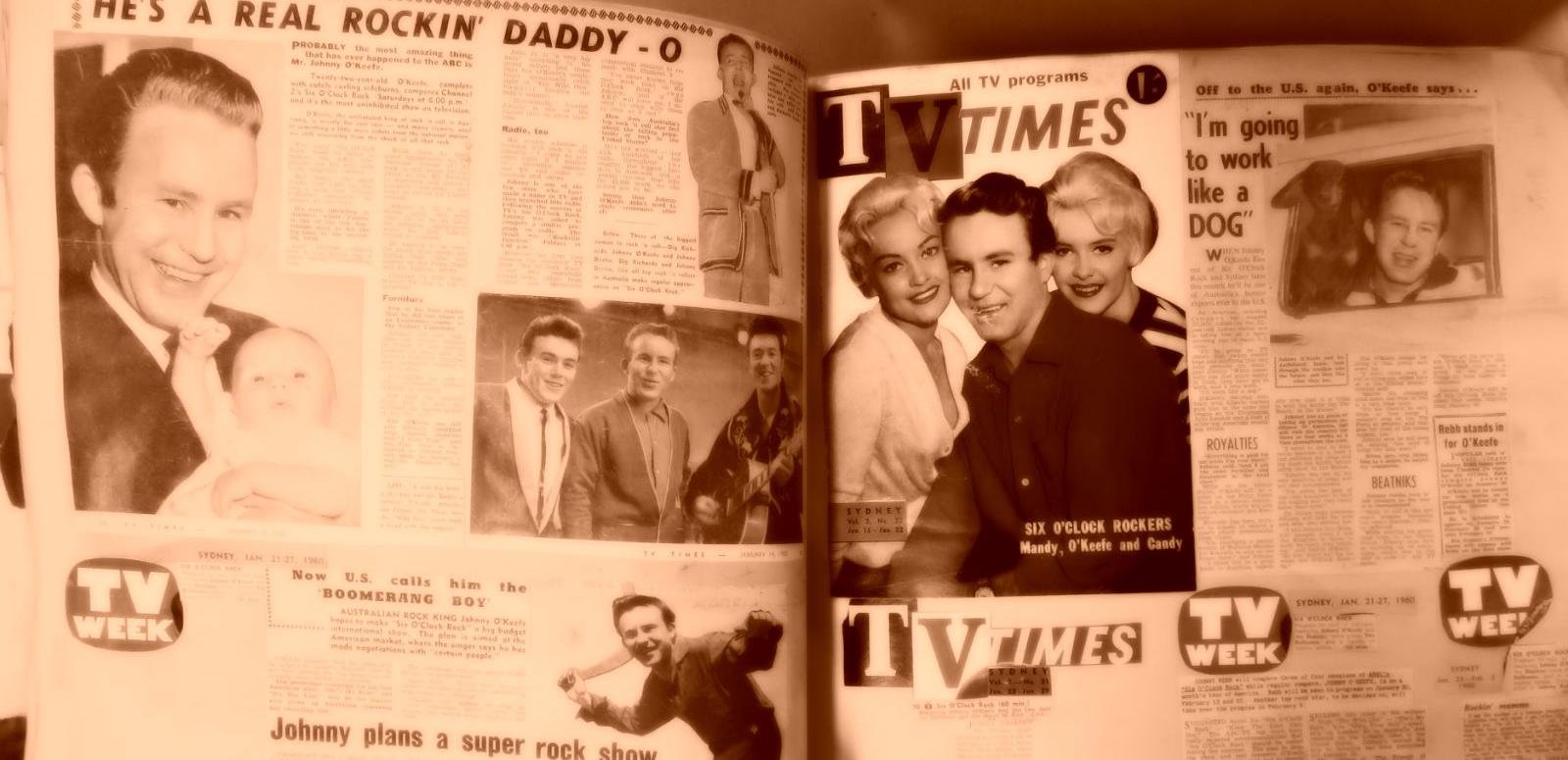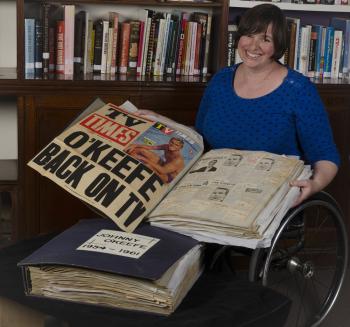Curator Tamara Osicka shares some of the secrets contained in the scrapbooks created by Johnny O'Keefe's mother, Thelma.

Curator Tamara Osicka shares some of the secrets contained in the scrapbooks created by Johnny O'Keefe's mother, Thelma.

Researching the history of an object can be like digging for treasure. The process of unearthing information and piecing it together and understanding an object’s origins, its meaning or its place in history can be intensely rewarding.
Some objects contain a multitude of stories. The Johnny O’Keefe scrapbooks are such objects. Lovingly compiled by Johnny’s mother Thelma over 12 years (1954-1965), their 578 pages are a rich resource for fans and researchers alike.
Dipping into their pages, you can find newspaper advertisements with Johnny modelling and promoting the latest chunky knit cardigans from Clan Murray Knitwear. There is an angry letter from Mascot Council complaining that the Dee Jay’s pianist had put his foot onto their piano during their performance. There a Christmas card that Johnny sent to people that had showed him support in the first year of his career.
Looking at the newspaper articles in the scrapbooks, you can see all the highs and lows in Johnny’s career but also bigger social stories such as the emergence of the teenager and how confronting this strange new music – rock‘n’roll – was considered at the time. Some of the vitriol and negativity is surprising and must have been hard for Johnny’s mother to read. It's clear from these pages how one person can be simultaneously idolised and reviled at the same time.
The mocking tones in which journalists discussed mental health at the time is confronting now. Johnny O’Keefe was open about his mental health struggles, possibly because in his life as a public figure it was impossible to hide them.
From the scrapbook, it is apparent that Thelma did not always paste the article into the scrapbook, accept what had been written and turn the page. On some pages, pasted next to these articles are the letters she received back from media organisations, in response to a letter of complaint she had sent.
Highlights include '60s colours and design, paraphernalia such as the handkerchief with Johnny’s face on it, the ad for a rock'n'roll skirt that you could buy with your favourite stars’ names emblazoned on it, and especially the ‘Friends of Johnny O’Keefe’ fan club certificates stating ‘I am proud to be a friend of Johnny and I will always try to help him as much as I can, and try to set a good example to all teenagers’.
The scrapbooks are available to browse below and as part of the Johnny O’Keefe curated collection.
Johnny O'Keefe Scrapbook Vol. 1, 1954–1961. NFSA title: 1293556
Johnny O'Keefe Scrapbook Vol. 2, 1962–1965. NFSA title: 1293569
Want to be the first to hear stories and news from the NFSA?
Subscribe to our newsletter and never miss out.
The National Film and Sound Archive of Australia acknowledges Australia’s Aboriginal and Torres Strait Islander peoples as the Traditional Custodians of the land on which we work and live and gives respect to their Elders both past and present.